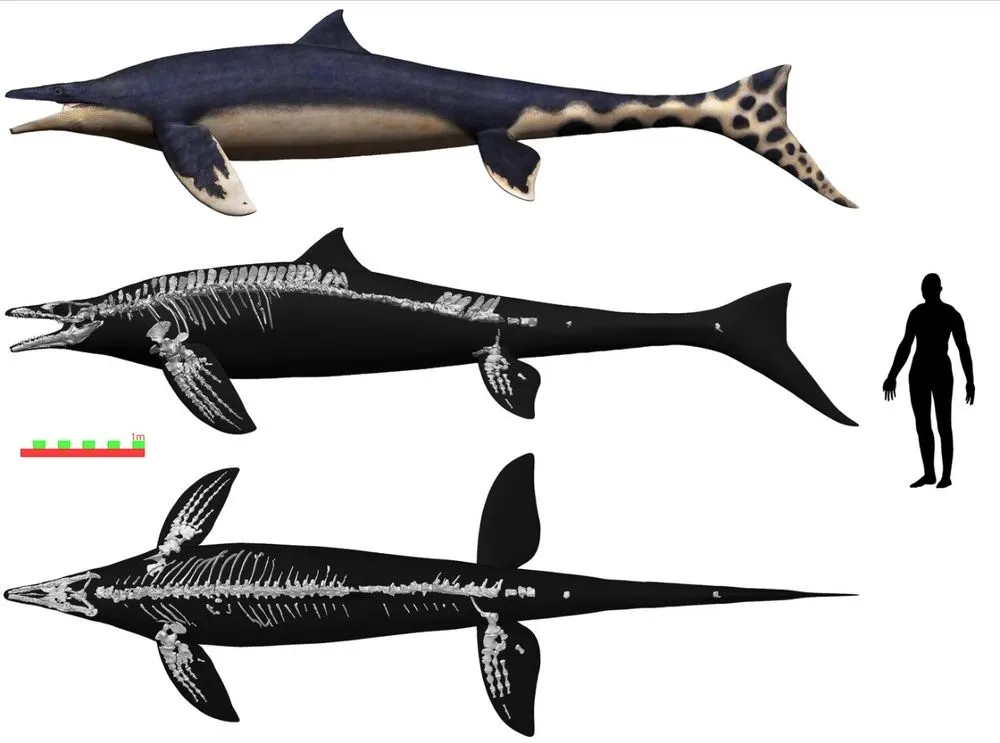Remains of a "blue dragon" found in Japan, which has no analogues in the world
Kyiv • UNN
Japanese scientists have discovered the remains of a bus-sized marine creature called the "blue dragon" that lived in the Pacific Ocean more than 72 million years ago and is classified as a new species of mosasaur.

Japanese scientists have discovered the remains of an ancient "blue dragon" creature the size of a that could have lived in the Pacific Ocean more than 72 million years ago, ScienceAlert reports, according to UNN.
Details
Scientists. Scientists in Japan have discovered the remains of an ancient creature that is more than 72 million years old. It is noted that it is about the size of a bus. Scientists reported that the animal had a crocodile-like head and binocular vision, as well as as well as four huge paddle-like limbs, and possibly a fin on its on its back, like a shark.
Japanese scientists call it the "blue dragon" because of the place where it was found and the mythical creatures of Japanese folklore. The nearly complete skeleton of the extinct animal was originally discovered in 2006 along the Aridagawa River in Wakayama by paleontologist Akihiro Misaki of the Museum of Natural and Human History. It took five years of careful work to remove the bones from the stone in which they were buried,
The official description of the 6-meter creature has now been classified as a completely new species of mosasaur called Megapterygius wakayamaensis.

Mosasaurs were some of the largest predators of all time, up to 17 meters long in some cases. For about 20 million years, these fearsome beasts dominated the ocean, the last of the great sea lizards. Their crushing jaws and cutting teeth could handle anything from clams to turtles to sharks. They even ate other species of their own kind,
READ ALSO: In Ukraine archaeologists have discovered the remains of a man who lived 7 thousand years ago.